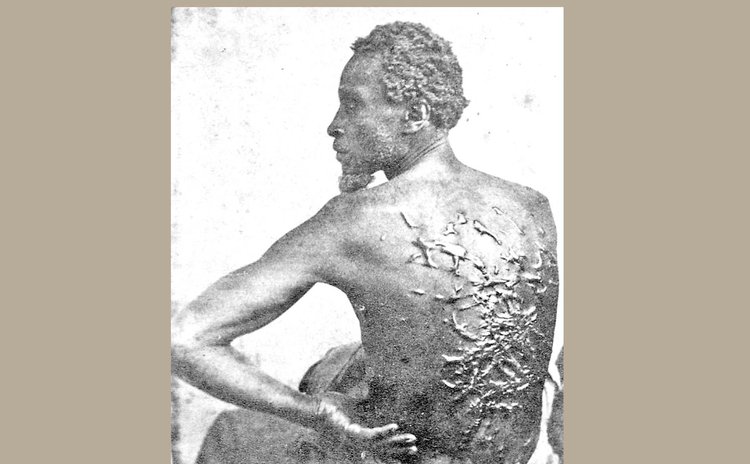Emancipation from mental slavery, the struggle continues

"Emancipate yourselves from mental slavery.
None but ourselves can free our minds."- Bob Marley in "Redemption Song"
We see this too often- Dominicans protesting the allocation of contracts and major projects by their government to foreigners. (Note that there was one such protest in Marigot last week).
We are witnessing this too many times-Dominicans prefer even inferior foreign goods and services over locally produced goods and services.
We hear this too often- Dominicans recognise greatness in their people only after foreigners gush over Dominican stars.
Our conclusion: like abused children, Dominicans dislike themselves; their psyche has been severely damaged over centuries of abuse. We need serious national counselling and rehabilitation. This also tells us that Dominicans must begin liberating themselves from mental slavery. Politicians will not do it for us. They are too busy taking advantage and exploiting our national weaknesses.
"None but ourselves can free our mind," Bob Marley reminds us.
However, two primary forms of mental slavery have been holding back the development of our people. They are blind support of political parties and the house slave mentality.
Blind political party support
We have said before and will repeat it, that the most debilitating form of mental slavery that erodes the core of nation building is blind party political support.
Writing in an article entitled "Politics and Mental Slavery" in the Jamaica Gleaner a few years ago, Peter Espeut, a sociologist and Roman Catholic deacon, suggested that a mentally enslaved person is someone who suspends his intellectual faculties and subjugates himself to the will and beliefs and attitudes of another person or group. Just as people in a cult do, just like many supporters of political parties do.
Espeut added that mental slavery is the inability to view events or oneself objectively. A mentally enslaved person will not apply his brain to evaluate what he is being told, to discover what is valid and rational for himself. Mentally enslaved people habitually accept and believe what he is told, whether it makes sense. Often, the mentally enslaved person does not even stop to reflect on what he sees with his eyes or hears with his ears and whether that is in keeping with what his "master" tells him. What is important to the mental slave is that "my side" said it. The mentally enslaved person laps it up if the party's leader says it, no matter how ridiculous, self-serving, contradictory and delusional. Yes, it is precisely the mentality of a brainwashed cult member.
Mark you, a mental slave does not have to be an illiterate or an ignoramus; they could be a graduate of the illustrious University of the West Indies (UWI), for instance, an ambassador to a major state or a principal of a top school or college. Mental slaves of the political kind are everywhere. That defies explanation.
Undoubtedly, there are many mentally enslaved people in all political parties. Some people have gone as far as to suggest that if one party puts up a dog, a monkey, or a broomstick as a candidate, their supporters will vote for that dog, that monkey or that broomstick because the plans, the analyses of the character and the political arguments of the dog, monkey or broomstick will be lost to these reactionary, unthinking, robotic party mental enslaved people. That is what we have become.
Modern House Slave
Apart from robotic party political support, another legacy of slavery that we need to emancipate ourselves from is the plantation mentality that is currently prominent in Dominica. That is too many Dominicans "hear no evil and see no evil," although it is right before their noses.
Basil Jarrett says as much in an article in the Jamaica Gleaner recently. He compared that thinking to the house slave mentality illustrated eloquently by Malcolm X, the late great American civil rights leader.
"We may no longer be on the plantation, but in many respects, the plantation is still very much with us," Jarrett writes.
Writes Jarrett: "Malcolm X called him the 'House Negro'. Malcolm described the House Negro as that slave who "lived close to his master in the big house, dressed like his master and wore his master's second-hand rags. He ate leftovers from his master's table, and when his master said, "We have good food," he would say, "Yes Masa, we have plenty of good food." When his master was sick, the House Negro would say, "What's the matter Masa, is we sick?" And when those troublesome field slaves would light the cane fields, the House Negro would fight harder than ever with his master to put out the fire".
Writes Jarrett, "The House Negro was not to be trusted, as he would often sell out the freedom fighters to his beloved lord and master. It was here that the distrust and disgust towards informants started and has endured to this day".
Too many of us would rather see no evil, hear no evil – until that evil reaches our own doorsteps or bank accounts, Jarrett concludes.
As we observe Emancipation Day 2023 on August 7, we must seriously ponder whether the struggle for true emancipation continues here in Dominica.




